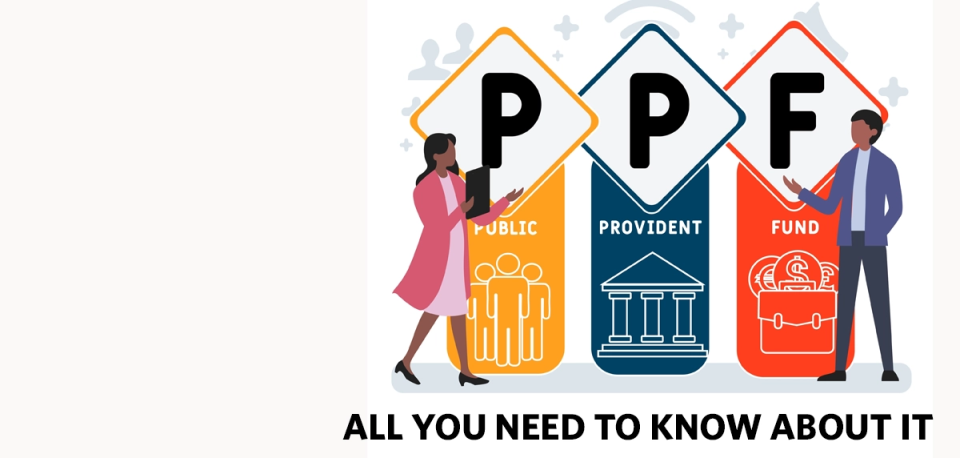Financial stability and wealth creation for the future begin with a well-defined investment process. Whether you seek stability for future goals or are looking to build a comfortable lifestyle for yourself and your loved ones, consistency and the right investment decisions are key.
Once you have a source of steady income, it is the right time to explore beginner investment ideas to lay a strong foundation. Many new investors seek guidance from experienced friends or family members for investment ideas for beginners. You may also consult a qualified financial adviser who can suggest straightforward investment plans to kick off your journey. However, it is ideal to weigh all your options and decide for yourself.
Let’s look at the various investment options so you may be able to devise an investment strategy suited to your needs.
What are the Best Investment Options for Beginners?
Young investors enjoy the advantage of time and can afford to choose long-term investment options that typically yield higher returns. Below are some of the most reliable and tax-saving investments to consider.
1. Fixed Deposits
A fixed deposit (FD) is one of the simplest investment plans. You deposit a lump sum with a bank or financial institution for a predetermined period and earn interest at a fixed rate. Fixed deposits offer:
Guaranteed Returns:
Your principal is safe, and interest is assured.
Flexible Tenure:
Terms range from six months up to ten years, letting you pick a period that matches your financial plan.
Withdrawal Rules:
Early withdrawal is possible but attracts a penalty, while interest rates set at the start remain unchanged throughout.
Interest Payouts:
You can receive interest monthly, quarterly, half-yearly, yearly, or reinvest it to be paid at maturity.
2. ULIP Plans**
Unit-linked Insurance Plans (ULIPs) combine life cover with market-linked investment. The premium you pay buys life insurance coverage and get you invested in equity, debt, or balanced funds as per your choice. You can consider ULIPs for the following features:
Dual Benefit:
Life cover plus growth potential.
Lock-in Period:
A five-year lock-in helps instil disciplined savings.
Flexibility:
You can switch between funds to align with your risk profile or market conditions.
Tax Savings:
Premiums qualify for deductions under Section 80C of the Income Tax Act, making them one of the best investment ideas for beginners looking to save on taxes.**
3. Mutual Funds
Mutual funds pool money from many investors to buy diversified portfolios of shares, bonds, or other securities, managed by professionals. They are considered ideal for beginners due to the following reasons:
Diversification:
Your money spreads across multiple assets, reducing risk.
Professional Management:
Fund managers handle research, selection, and timing of investments.
Affordability:
You can start with modest sums and top up through systematic investment plans (SIPs).
Convenience:
New investors save time and effort, relying on experts to navigate market ups and downs.
Additionally, beginners can consider investing during a New Fund Offer (NFO), the initial subscription phase of a mutual fund. An NFO often provides an opportunity to enter at a lower NAV (Net Asset Value), making it a potentially attractive entry point for first-time investors.
4. National Pension Scheme (NPS)**
The NPS is a retirement-focused investment option offering two approaches: active choice, where you select the mix of equities, government securities, and corporate bonds; and auto choice, which adjusts asset allocation by age. Highlights include:
Systematic Contributions:
A minimum annual investment of ₹6,000 builds your pension corpus steadily.
Tax Benefits:
Contributions qualify for additional deductions under Section 80CCD(1B).
Payout Structure:
Upon turning 60, up to 60% of the corpus can be withdrawn as a lump sum, while the rest purchases an annuity for regular income.
5. Public Provident Fund (PPF)**
The PPF is a government-backed, low-risk scheme offering attractive interest rates and tax benefits. Features include:
Long Tenure:
A 15-year term, extendable in five-year blocks.
Tax Exemption:
Contributions up to ₹1.5 lakh per annum qualify under Section 80C, and interest is tax-free.
Stability:
Rates are reviewed quarterly by the government, typically outpacing savings accounts.
6. Bank Deposits
For very conservative investors, bank deposits, such as fixed deposits and recurring deposits, offer security and ease of use. Recurring deposits allow you to invest a fixed sum each month or quarter, fostering disciplined savings. While returns are lower than equity or mutual funds, they remain a solid starting point for new investors with little risk appetite.
How to Start Investing Money for Beginners?
Step 1. Define Your Financial Goals:
Decide whether you’re saving for retirement, a home, education, or another aim. Clear goals shape your investment strategy.
Step 2. Choose Suitable Investment Options:
If you have ₹20 lakhs to invest, for example, split it among low-risk mutual funds, index funds, or ETFs to balance growth and stability.
Step 3. Open an Account on a Beginner-friendly Platform:
Many online platforms require small initial sums and offer SIPs, making it easy to stick to your plan. You can use an SIP calculator to estimate future returns and plan your contributions more effectively.
Step 4. Embrace the Power of Compound Interest:
Regular contributions grow faster when interest compounds over time.
Step 5. Stay Consistent:
The best investment ideas for beginner’s hinge on steady, long-term contributions rather than trying to time the market.
Factors to Consider Before Investing Money for Beginners
Set Your Financial Goals:
Align your choice of investment plans with clear, measurable targets, such as a retirement corpus or a child’s education fund. Use a tool like a fixed deposit calculator to understand how much you need to invest as per your financial goals.
Know Your Risk Tolerance:
Conservative investors may gravitate toward fixed deposits or PPF, while those comfortable with volatility might choose equity mutual funds or ULIPs.
Decide the Investment Timeframe:
Short-term goals suit low-risk instruments, whereas long-term ambitions can leverage higher-return options even if they carry more risk.
Build an Emergency Fund:
Keep three to six months’ expenses in a liquid fund or savings account before locking money away in longer-term investments.
Review Your Financial Health:
Clear high-interest debts first, and be fully aware of your income, outgoings, and liabilities.
Understand Different Investment Types:
Educate yourself about stocks, bonds, mutual funds, ULIPs, and government schemes to make informed decisions.
Diversify Your Portfolio:
Spread your money across various asset classes to reduce the impact of market swings and aim for steadier returns.
A sound investment strategy rests on understanding compound interest, setting realistic goals, and diversifying across different investment options. Beginners with a lower risk appetite can start with bank deposits, PPF, or NPS, while those seeking higher returns might explore mutual funds, ULIPs, or a mix of equity and debt funds. By adopting these investment ideas for beginners, supported by a clear investment process and consistent contributions, you’ll be well on your way to achieving a robust financial future.
** Tax exemptions are as per applicable tax laws from time to time.
























